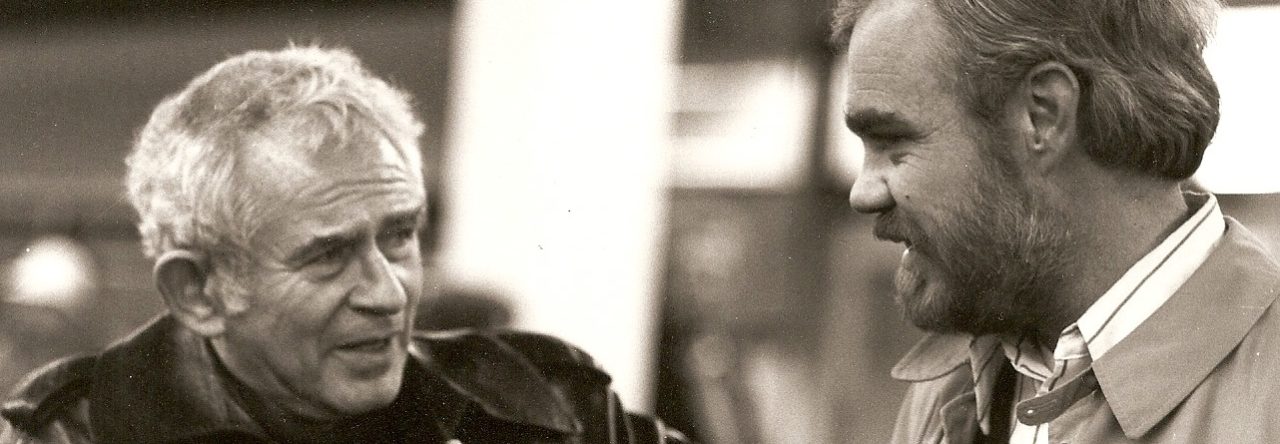An excerpt from a review of The Executioner’s Song in the Springfield State Journal-Register, November 1979
Routinely, at Gary Gilmore’s autopsy, the doctors peeled the skin back from his face as if it were a rubber mask, sawed open his skull, removed and weighed his brain. Then looking for tumors and motor system difficulties, they sliced it up as one would a meat loaf. They found nothing remarkable. Nor did they discover any abnormalities when examining the rest of his body, including his heart, or what was left of it.
In an attempt to delineate the character of Gilmore, Norman Mailer has written a 1,000-page “true life novel,” from his release from the U. S. Penitentiary at Marion, Illinois in April 1976 to the moment nine months later when his heart was pulverized by four steel-jacketed bullets in a deserted building at Utah State Prison.
Gilmore’s cold-blooded murders of a hotel operator and a gas station attendant, his capture, trial, conviction and sentencing were given full, if routine, coverage by the Utah media. But Gilmore did not receive national attention until he fired his court-appointed defenders, waived his appeal, and demanded that his death sentence be carried out on the appointed day. Presuming a hidden motive, the Utah Attorney General, and the media, expected an eleventh-hour turnaround by Gilmore, one that would no doubt be strengthened by his fierce insistence that he be executed. It didn’t happen. Gilmore was (excuse this) dead serious.
Not since the Rosenbergs’ execution in 1953 had a capital case received such attention. Gilmore’s face appeared on the cover of Newsweek, and on T-shirts (one of which, Gilmore said with gallows humor, might be worn to the execution and then auctioned off); the wire services systematically interviewed his friends, relatives, and lawyers; his tortured love affair and suicide pact with Nicole Baker made the evening news on TV. Even his selection for the condemned man’s last meal—a six-pack of Coors—commanded the front page of major metro newspapers. Through it all, Gilmore limited his contacts with the media, having signed an exclusive access contract with Lawrence Schiller, literary entrepreneur and Mailer’s collaborator. But his refusal to talk with the press only heightened his notoriety. Gary Gilmore became a household word in America before he died.
